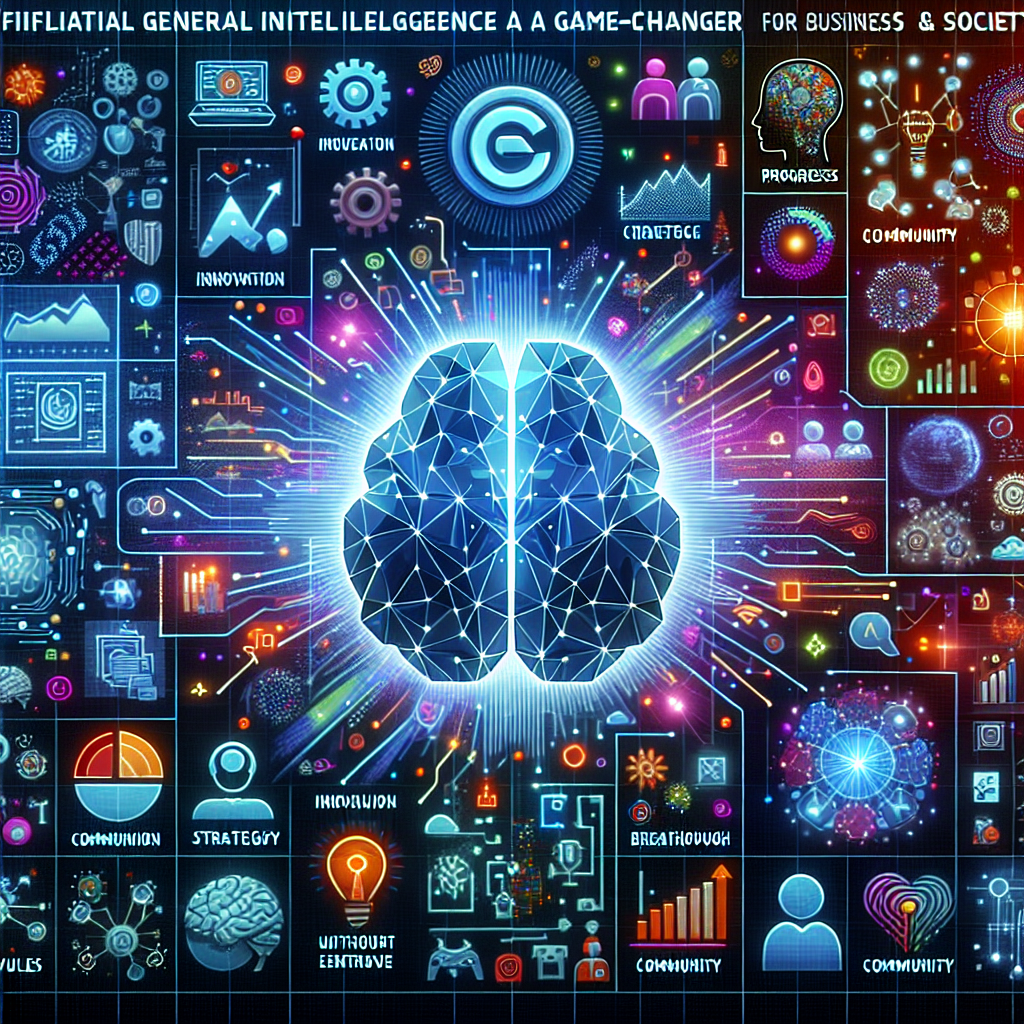Artificial General Intelligence (AGI) is a term that has been gaining popularity in recent years as advancements in technology continue to push the boundaries of what is possible. AGI refers to a type of artificial intelligence that is capable of performing any intellectual task that a human being can do. This includes tasks such as reasoning, problem-solving, learning, and understanding natural language.
AGI has the potential to be a game-changer for businesses and society as a whole. Its ability to automate complex tasks and make decisions based on large amounts of data has the potential to revolutionize industries across the board. In this article, we will explore the impact that AGI could have on businesses and society, as well as address some frequently asked questions about this emerging technology.
The Impact of AGI on Businesses
One of the key ways that AGI could benefit businesses is through increased efficiency and productivity. By automating tasks that currently require human intervention, businesses can save time and resources, allowing them to focus on more strategic initiatives. For example, AGI could be used to analyze large datasets and identify patterns and trends that would be difficult for humans to uncover on their own.
AGI could also help businesses make more informed decisions by providing them with valuable insights into their operations. By analyzing data in real-time, AGI could help businesses identify opportunities for growth or areas where they could improve efficiency. This could lead to better decision-making and ultimately, increased profitability.
Another potential benefit of AGI for businesses is its ability to personalize customer experiences. By analyzing customer data and preferences, AGI could help businesses tailor their products and services to individual customers, creating a more personalized and engaging experience. This could help businesses build stronger relationships with their customers and increase customer loyalty.
The Impact of AGI on Society
In addition to its impact on businesses, AGI could also have far-reaching implications for society as a whole. One of the key benefits of AGI is its ability to automate tasks that are currently performed by humans, such as driving cars, diagnosing medical conditions, and even providing customer service. This could lead to significant changes in the job market, as certain roles may become obsolete while new opportunities emerge in industries related to AI development and maintenance.
AGI could also help address some of the biggest challenges facing society today, such as climate change and healthcare. By analyzing large amounts of data and identifying patterns and trends, AGI could help scientists and policymakers develop more effective solutions to these complex problems. For example, AGI could be used to analyze weather patterns and predict natural disasters, helping communities prepare and respond more effectively.
Additionally, AGI could help improve access to healthcare by providing more accurate diagnoses and treatment recommendations. By analyzing medical data and identifying patterns in patient outcomes, AGI could help healthcare providers make more informed decisions and improve patient outcomes. This could lead to better health outcomes for individuals and reduce healthcare costs for society as a whole.
Frequently Asked Questions About AGI
1. What is the difference between AGI and other types of artificial intelligence?
AGI is different from other types of artificial intelligence, such as narrow AI or machine learning, in that it is capable of performing any intellectual task that a human can do. While narrow AI is designed to perform specific tasks, such as image recognition or language translation, AGI is more versatile and can adapt to a wide range of tasks and environments.
2. How close are we to achieving AGI?
While significant progress has been made in the field of artificial intelligence in recent years, achieving AGI is still a long way off. Researchers are actively working on developing AGI, but there are still many technical challenges that need to be overcome before it becomes a reality. Some experts predict that AGI could be achieved within the next few decades, while others believe it may take much longer.
3. What are the potential risks associated with AGI?
While AGI has the potential to bring about many benefits for businesses and society, there are also potential risks to consider. One of the biggest concerns is the impact that AGI could have on the job market, as automation could lead to job displacement for many workers. There are also ethical concerns surrounding the use of AGI, such as issues related to privacy, bias, and accountability.
4. How can businesses prepare for the advent of AGI?
Businesses can prepare for the advent of AGI by investing in research and development and staying up to date on the latest advancements in artificial intelligence. It is also important for businesses to consider the ethical implications of using AGI and develop policies and guidelines to ensure that it is used responsibly. Additionally, businesses can explore how AGI could be used to improve their operations and develop strategies to take advantage of this emerging technology.
In conclusion, AGI has the potential to be a game-changer for businesses and society by automating tasks, providing valuable insights, and improving decision-making. While there are still many challenges to overcome, the possibilities offered by AGI are exciting and could lead to significant advancements in technology and innovation. By staying informed and preparing for the advent of AGI, businesses and society can reap the benefits of this transformative technology.

